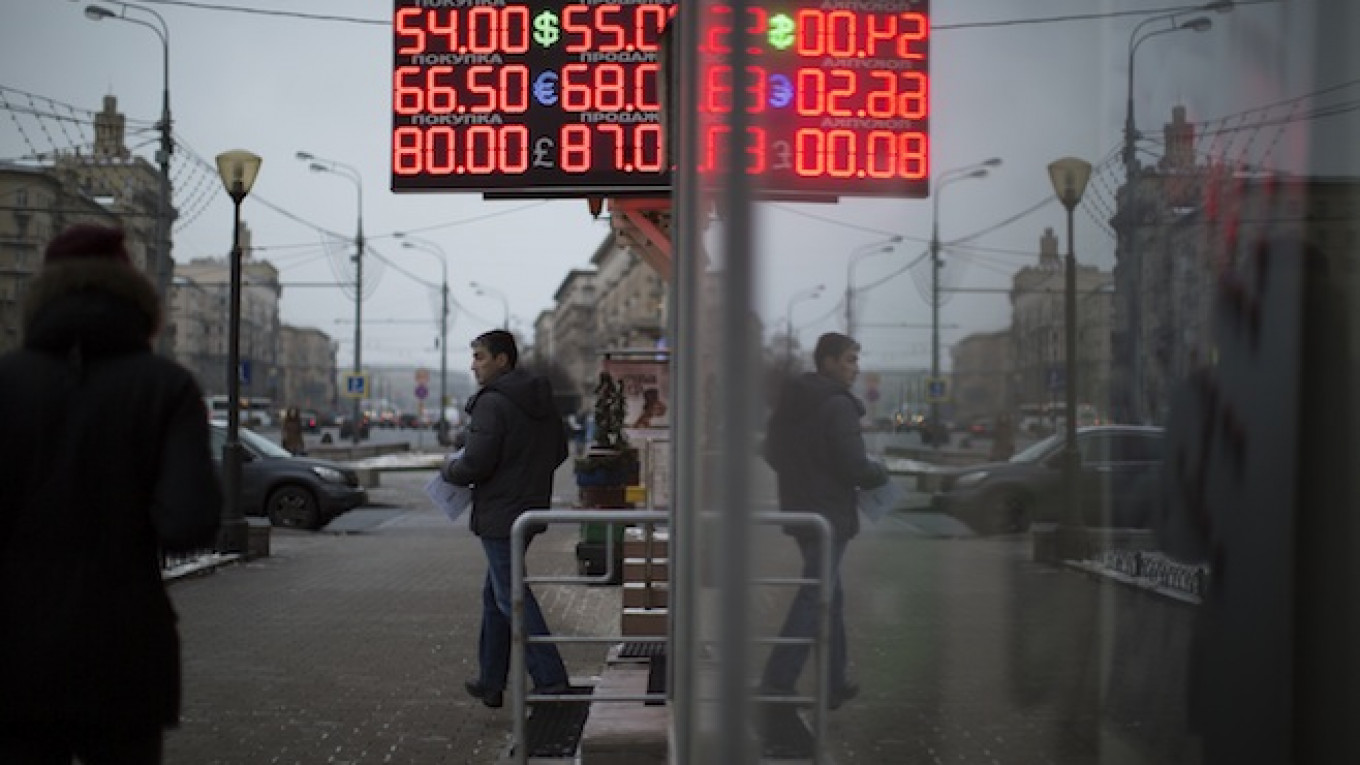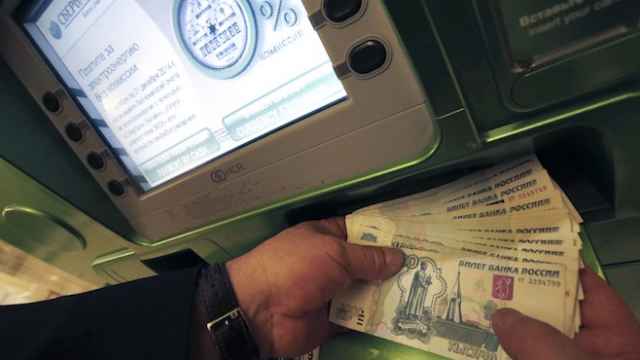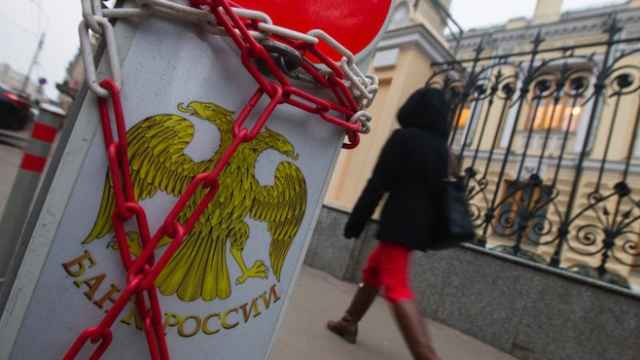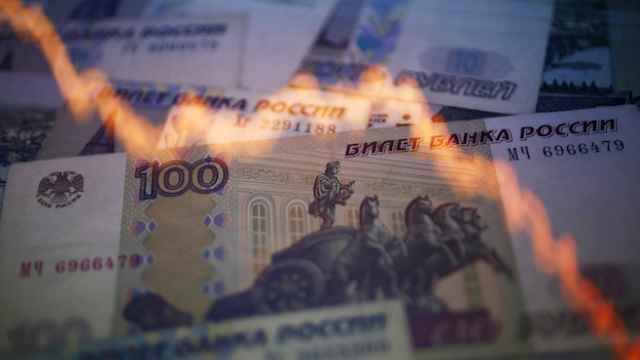The ruble extended losses on Wednesday afternoon as oil prices slid to a new five-year low after the OPEC oil producers' group cut its demand forecast for next year.
At 6:50 p.m., the ruble was down around 1.1 percent against the dollar at 54.65 and down 1.6 percent against the euro at 67.92, hitting a new all-time low against the euro-zone currency.
Global oil benchmark Brent was around 3 percent lower, below $65 a barrel, in late afternoon trading in Moscow.
"Oil is playing against the ruble, but on the other hand we are awaiting the Central Bank, which could unexpectedly 'give a thump on the head' with interventions," said Pyotr Neimyshev, a forex trader at bank Otkritie.
Oil and gas account for two-thirds of Russia's exports, so oil price swings have an important impact on the country's balance of payments and therefore the currency.
The ruble's latest fall was more restrained than in recent weeks, in part because the market expects the Central Bank to take decisive action to support the currency when it holds its next monetary policy meeting on Thursday.
A Reuters poll on Tuesday predicted that the bank would increase its main lending rate by one point to 10.5 percent on Thursday in a bid to help the ruble.
"The general feeling is that the CBR needs to come up with a sizable package of policy measures in order to address excessive FX volatility," Maxim Korovin, a forex analyst at VTB Capital bank, said in a note.
The Russian Central Bank said Wednesday that it had conducted $400 million worth of forex interventions on Monday, adding to $4.53 billion in interventions last week, despite floating the currency a month ago.
The dollar-denominated RTS share index was down 0.4 percent to 854 points on Wednesday, while its ruble-based peer MICEX was 0.6 percent higher at 1,483 points.
A Message from The Moscow Times:
Dear readers,
We are facing unprecedented challenges. Russia's Prosecutor General's Office has designated The Moscow Times as an "undesirable" organization, criminalizing our work and putting our staff at risk of prosecution. This follows our earlier unjust labeling as a "foreign agent."
These actions are direct attempts to silence independent journalism in Russia. The authorities claim our work "discredits the decisions of the Russian leadership." We see things differently: we strive to provide accurate, unbiased reporting on Russia.
We, the journalists of The Moscow Times, refuse to be silenced. But to continue our work, we need your help.
Your support, no matter how small, makes a world of difference. If you can, please support us monthly starting from just $2. It's quick to set up, and every contribution makes a significant impact.
By supporting The Moscow Times, you're defending open, independent journalism in the face of repression. Thank you for standing with us.
Remind me later.






